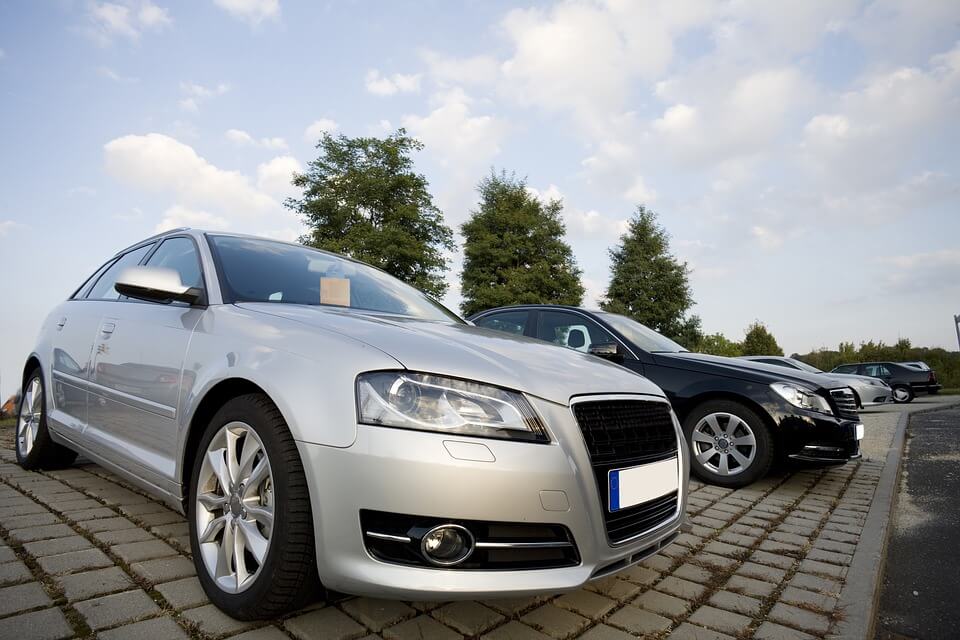If you’re new to driving a van, you’ll want to feel comfortable as you build up your confidence in a different type of vehicle.
Thinking about getting behind the wheel of your first van? It’s a big step, and finding the right one can feel overwhelming. But don’t worry, we’ve done the research for you!
You’ll want your first van to be affordable, reliable and practical for your job. This means factoring in aspects like how much equipment the van can handle and how much you’ll be spending on fuel and insurance—whether you’re going with an annual policy or temporary van insurance.
Driving a van for the first time can be a nerve-racking experience, so we’ve put together a list of the best vans for new drivers [1]. We explored factors including safety ratings, miles per gallon (MPG), size, purchase price and insurance groups, ensuring the best balance of practicality, running costs, and ease of driving.
| Rank | Van | Maximum load length (mm) | Maximum load height (mm) | Maximum load width (mm) | Maximum load volume (cu m) | Cost (£) | MPG | Safety Assist Performance | Insurance Group |
| 1 | Volkswagen Caddy Cargo | 1,797 | 1,272 | 1,613 | 3.1 | £24,025 | 57.6 | 68% | 28.5 |
| 2 | Renault Kangoo | 1,806 | 1,215 | 1,570 | 3.3 | £20,250 | 54.3 | 78% | 31 |
| 3 | Mercedes Citan | 1,806 | 1,256 | 1,524 | 2.9 | £21,310 | 54.3 | 87% | 29 |
| 4 | Vauxhall Combo Cargo | 1,781 | 1,236 | 1,630 | 3.3 | £20,850 | 54.4 | 62% | 31 |
| 5= | Ford Transit Courier | 1,802 | 1,253 | 1,535 | 2.9 | £16,200 | 54 | 93% | 35 |
| 5= | Toyota Proace City | 1,817 | 1,236 | 1,550 | 3.3 | £22,412 | 48.5 | 68% | 28 |
| 5= | Fiat Doblo | 1,817 | 1,200 | 1,527 | 3.4 | £21,000 | 54.4 | 62% | 31 |
| 5= | Peugeot Partner | 1,817 | 1,236 | 1,550 | 3.3 | £20,000 | 53.15 | 62% | 29.5 |
| 6 | Citroën Berlingo | 1817 | 1236 | 1550 | 3.3 | £23,050 | 55.6 | 62% | 31 |
| 7= | Ford Transit Connect | 1,753 | 1,269 | 1,538 | 2.9 | £23,500 | 52.1 | 83% | 29 |
| 7= | Nissan Townstar | 1,806 | 1,215 | 1,570 | 3.3 | £21,825 | 41.5 | 78% | 31 |
- The Volkswagen Caddy Cargo takes our top spot as best small van for new drivers, thanks to its all-round performance. It offers reasonable load space, the highest miles per gallon (57.6 MPG) and a lower average insurance group (28.5), potentially leading to lower premiums [2].
- The Renault Kangoo costs just over £20,000 (excluding VAT) to buy and offers 54.3 MPG, making it an affordable van to run after the initial outlay.
- The Mercedes Citan rounds off our top three with a reassuringly high safety assist performance rating of 87% and an average insurance group of 29.
Which other vans are suitable for first-time drivers?
Our research found the following vans scoring highly;
- The Ford Transit Courier was regarded as the most affordable van for new drivers, with a starting price of just £16,200.
- The Toyota Proace City has the lowest average insurance group of 28. Please note that insurance groups are being replaced by the vehicle risk rating system.
- Offering 57.6 miles per gallon, the Volkswagen Caddy Cargo offers impressive levels of fuel efficiency.
Claire Wills-Mckissick, Temporary Insurance Expert at Tempcover, said:
“For new van drivers, finding the right vehicle to build confidence is important. It’s crucial to consider factors like load capacity, fuel efficiency, and insurance costs to ensure they have a vehicle that is practical, affordable, and easy to handle. Our research highlights small vans that strike the perfect balance of these key features, helping drivers choose with greater assurance.
Temporary van insurance is an excellent option for those looking to test drive a van. It allows drivers to assess whether the van meets their needs without affecting any existing insurance, giving peace of mind.”
Where can I find temporary van insurance?
In addition to offering comprehensive cover while taking a van for a test drive, Tempcover’s temporary van insurance also lets you share a drive or borrow someone else’s van. You could get temporary insurance for a few weeks while you learn to drive in a van. This will give you extra time to consider other insurance options.
To get temporary van insurance, you must:
- Be aged 17-77 years old.
- Hold a full UK or EU driving licence with no more than 7 points in the last 3 years.
- Have been a permanent UK resident for the last 12 months or be a British expatriate.
- Have no criminal convictions.
- Not had a previous policy of insurance declared void by an insurer.
To get temporary van insurance, your van must:
- Be valued between £1,500 and £65,000.
- Be taxed and in a roadworthy condition with a valid MOT.
- Have no modifications other than the addition of the manufacturer’s optional extras (signage, roof racks, ply lining, interior storage) or those designed to aid disabled drivers.
- Be a right-hand drive car with no more than 5 seats.
- Not weigh more than 7.5 tonnes.
- Each insurer on our panel has its own eligibility criteria. Please pay close attention to their Proposer’s Declaration.
There is so much choice when it comes to choosing your first van. Make sure you feel comfortable with the way it drives and that it has space for everything you need. If you’re focusing on value, factor in asking price and MPG into your research when it comes to picking your van.
Sources
Methodology[1]
A seedlist of the best small vans has been created using articles from AutoExpress, What Car? and Discount Van Sales. Any vans with incomplete data and that had a load volume outside of 2.9 and 3.4 cubic metrics were removed due to being outliers. The ranking of the best small vans for new drivers prioritises load capacity while also considering affordability, fuel efficiency (high MPG), and low insurance groups. This ensures the best balance of practicality, running costs, and ease of driving for new van users. Each metric was scored out of 10 and then averaged to determine the overall ranking.
The following sources were used:
Vehicle Size: Parkers, Carwow & Autoexpress. Basic trim specs were taken where possible. This is not an exact science.
Cost & MPG: Varied per model and available on request. Data based on diesel models and basic trim where possible.
Insurance Group. Average taken where necessary.
Frequently Asked Questions
Are new drivers allowed to drive vans?
Yes, new drivers with a category B licence can drive most conventional vans weighing up to 3.5 tonnes. If you want to drive a van that weighs more, you will need a different licence. To get this, you’ll need to pass a test in one of these larger vehicles.
Is driving a van harder than a car?
Driving a van is different to driving a car, but whether it is deemed ‘harder’ will depend on the individual. If you’re driving a van, the first thing you’ll notice is the size of it. Most vans are wider, taller and longer than the majority of cars.
You’ll need to make the necessary adjustments to things like your mirrors and seat and prepare to drive at a slower speed. National speed limits are 10mph lower than for cars: 50mph on single carriageways/60mph on dual carriageways.
What is the best van to buy in 2025?
There are many factors when it comes to choosing your first van. The most important things to consider are if you’re happy driving it and if it is roadworthy. Our research for best vans for new drivers – based on factors including safety ratings, miles per gallon (MPG), size, purchase price and insurance groups – found the Volkswagen Caddy Cargo, Renault Kangoo and Mercedes Citan ranking highest.




